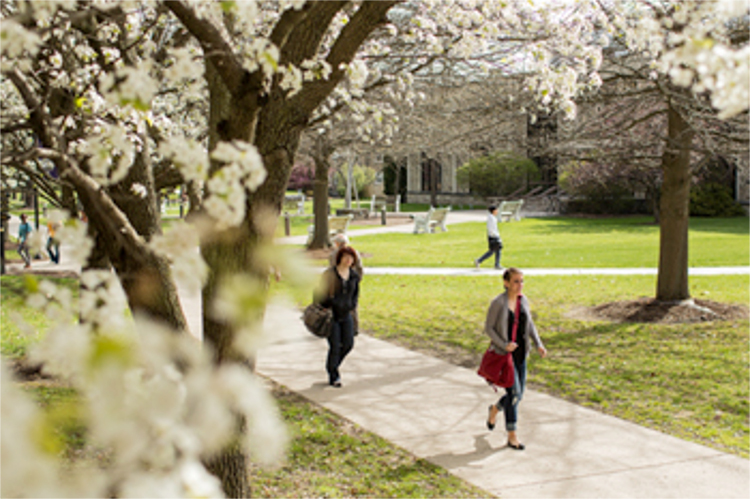
California Higher Education Bill will Undermine Faith-based Universities
Stanley Carlson-Thies, June 27, 2016
SB 1146, currently moving through the California legislature, will marginalize religious colleges and universities that have a strong religious and countercultural moral identity, reducing the choice of institution for students, faculty, and staff, and harming low-income students who seek a religiously conservative liberal arts education.
California higher education law forbids colleges and universities that receive any state funding from discriminating against anyone on the bases of, among other characteristics, sexual orientation, gender identity, and religion. The law, though, has an exemption for religious higher education, so that religious colleges and universities can be, well, religious! They can have a faith-shaped curriculum, require chapel attendance, engage a faculty that holds to particular religious beliefs, and even require students, faculty, and staff to pledge to live up to the conservative moral standards of a religion.
Some of these institutions have received an exemption from the federal Title IX law, which bans sex discrimination in federally assisted education, a prohibition that the federal government now says also bans discrimination based on sexual orientation and gender identity. Students have been able to use Cal Grants—state scholarships—at California religious colleges and universities, for their policies concerning religion, sexual orientation, sex, and gender identity are legal under state and federal law.
All of this—diverse institutions, respect for differing religious and moral values, extensive choice for students, a religious setting for students, faculty, and staff who prefer such, state government support for low-income students committed to a faith-based education and to traditional moral values—is at extreme risk from SB 1146. Its author, state Senator Ricardo Lara, aims to stop what he alleges, but with only the most minor proof, is discriminatory and harmful treatment of LGBT students and employees by California’s conservative religious colleges and universities, such as Biola University, Azusa Pacific, Thomas Aquinas, and William Jessup.
SB 1146 has passed the Senate, and on June 21, 2016, after a distressing hearing, the Assembly higher education committee. A few more steps and, everyone expects, the bill will land on Governor Jerry Brown’s desk.
The bill has been substantially amended, and may be amended yet again. It has two major negative features and it sets the stage for a future additional blow against religious education in California. Most troubling, it narrows the religious exemption in California law so that only seminaries and other institutions devoted to training in religion will be exempt from the nondiscrimination requirements—not religious liberal art colleges. That means that Biola University, for example, whose aim is to prepare students to “think biblically about everything” and which has a conservative conduct code, would no longer be exempt. The institution would suddenly be liable in court not only if a student alleged discrimination based on sexual orientation or gender identity but if Biola (originally named the “Bible Institute of Los Angeles”) continues to select only evangelical Christians for its faculty or offended a student because of a religious teaching in the classroom or chapel.
Second, California religious higher education institutions that have a federal Title IX exemption would have to disclose that exemption in a “prominent location” on campus, in written materials sent to prospective students, during new-student orientations, and in information provided to faculty and staff. The federal government already “outs” exempt institutions on a website, and SB 1146 would create a parallel state “shaming” site. The religious institutions, of course, already inform students, faculty, and staff about their conduct requirements, which are legal and—after all—exactly the moral standards of the religion!
In the Assembly hearing on June 23, the bill’s author was challenged about how the narrowing of the exemption would undermine the ability of religious colleges and universities to maintain the religious and moral environment that is core to their identity and beliefs. No, no, he repeated again and again: the institutions can keep their belief and conduct standards. But, he was challenged, how is that possible if maintaining those standards will land them in court as soon as a student or staff or faculty member protests? Not to worry, he said: the bill will simply give students and employees of these religious colleges the protection from discrimination they have if they attend a secular California institution. That is, as long as the religious colleges and universities operate just like a secular institution, they are safe from crippling lawsuits. But they can still maintain on paper the convictions and requirements the state has decided to label as invidious discrimination.
The bill no longer, for the moment, anyway, makes colleges with a Title IX exemption off limits for Cal Grant students. Unfortunately, another state legislator has the goal firmly in mind of keeping Cal Grant students from these allegedly discriminatory institutions, no matter if the students desire to attend exactly a religious liberal arts college with a morally conservative campus life. California has a reputation as a place of tolerance for a wide range of religions and spiritualties and life styles. That reputation is increasingly not deserved.
